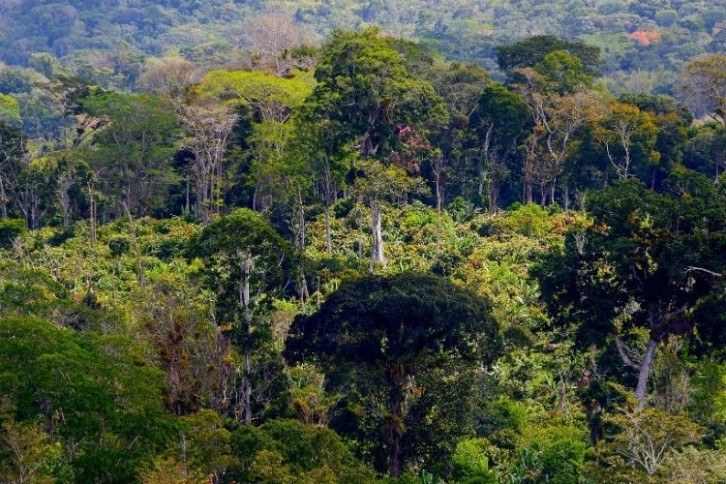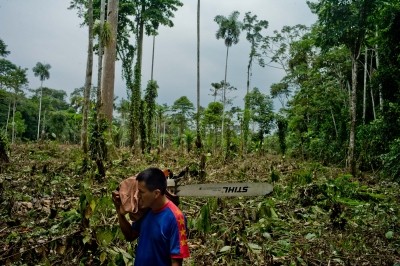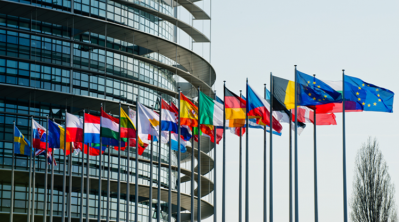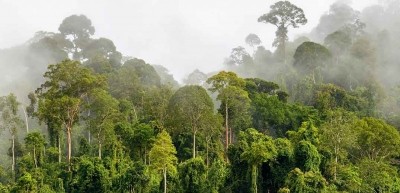EUDR
European Union to delay ‘high risk’ element of deforestation bill

From the end of December 2024, companies importing cocoa (and other commodities) will have to use geolocation data to demonstrate they do not come from deforested or degraded land after December 2020. Businesses that breach the regulation will face fines of up to 4% of their total annual turnover in the EU.
ConfectioneryNews understands the proposed ‘High Risk’ and ‘Low Risk’ designations are the elements of the law that are being delayed until 2025. All countries are designated a ‘medium’ level of risk until the methodology is implemented.
The EUDR proposal was that different countries would be given different designations, with ‘High Risk’ countries subject to higher costs, more checks, and generally more burdens, in addition to the reputational damage.
This now reportedly will not be included in the EUDR as of the implementation deadline of 31 December 2024. The new amendment will not affect all other elements of the EUDR.
Nicko Debenham, a sustainability advisor and founder of Sustainability Solutions, told this publication: “If every country is standard [rather than low, standard and high], it means that nothing changes for the operators importing from countries that would have been high risk; they still need to collect data, assess risk, and mitigate risk.
“The countries that would have been categorised as low risk now also have to risk assess and mitigate, as well as just collect data, which is what they would have been required to do as an operator importing from a low risk country.
“All that changes is that the European national competent authorities will have to inspect 3% of all parcels and operators instead of 1% low risk, 3% standard risk, and 9% high risk.
“So, to cut a long story short, if you are an operator importing from a potential high-risk origin, then nothing changes apart from the risk of being inspected, which moves from 9% to 3%.
Palm oil
Malaysia, the largest exporter of palm oil, and other countries expressed concerns about reputational damage associated with a ‘high risk’ label. It fears the new law could lead companies to cease operations in these regions or favour large producers over small farmers, who may struggle to comply with the new regulations.
The EU executive has appeared to have listened to those concerns and will delay the release of the classification until after the EU elections in June, when a new Commission (the EU’s administrative body) will assume office.
Malaysia’s prime minister, Anwar Ibrahim, called for the EU to revise the EUDR in 2023, saying, “The EU should show some sort of appreciation. At least give recognition and recognise the efforts by Malaysia.”
A recent WTO ruling has backed Malaysia’s claim of EU discrimination against palm oil. “This ruling from WTO demonstrates that Malaysia’s discrimination claims are justified. This vindicates Malaysia’s pursuit of justice for our biodiesel traders, companies, and employees,” a government spokesperson said.
Malaysia has set out the case against EUDR for almost two years. In particular, concerns that EUDR rules would disadvantage Malaysia’s hundreds of thousands of small farmers. Overall, Malaysian exporters already have the tools to comply with strict deforestation criteria in place. The Malaysian Sustainable Palm Oil (MSPO) certification standard guarantees no deforestation and good agricultural practices and can meet standards set in the EU and anywhere else.
Cocoa
The EU’s Environment Commissioner, Virginijus Sinkevičius, toured South America last week to address concerns by cocoa farmers related to the regulations.
“The EU Deforestation Regulation will enter into effect at the end of this year, and some of the countries affected are asking for discussions on the details, so I am answering that request,” he told local media.
Latin American cocoa producers have raised concerns about navigating Brussels-imposed bureaucracy and the associated costs of verifying that commodities have not been sourced from deforested land.
The Commissioner said the EU is collaborating with stakeholders on the development of a methodology for benchmarking, aiming for it to be “as objective and transparent as possible.”
He also said the EU would support establishing a traceability system to facilitate compliance, partly funded with €10 million and funding from other anti-deforestation initiatives.
“My intention is to calm down any fears about the possible consequences and underline the advantages for all the countries concerned,” he said
By delaying the ‘High Risk’ element of the EUDR, Brussels appears to be listening to the concerns about polygons and other issues reported by ConfectioneryNews at the recent World Cocoa Foundation and Chocoa meetings in Amsterdam.
Many stakeholders have warned that without the new amendments to the EUDR, the first few months of 2025 could see a supply crunch, with small farmers potentially losing income and livelihoods - and price rises for cocoa, coffee, baked goods, and many more products in European markets.














